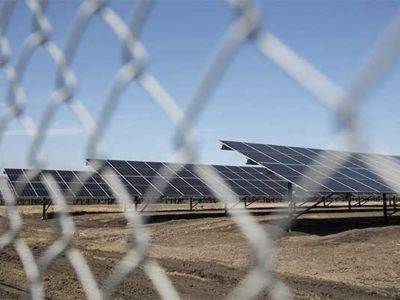Washington, DC – Analysis shows opportunity for investment and economic growth with policies that make it easier for large companies to use wind and solar to power their operations in Missouri
Advanced Energy Economy (AEE), a national business association, today released “Expanding Missouri’s Corporate Renewable Energy Market,” a policy brief outlining simple changes that could significantly expand private investment in the state. By allowing companies in Missouri to contract directly with third-party suppliers of renewable energy, as they are able to do in many other states, and raising the state’s unusually low cap on the size of installations that qualify for net metering, Missouri can unleash its renewable energy potential and drive private investment, job creation, and economic growth, according to the report.
An increasing number of major corporations have set sustainability targets that involve powering their operations with renewable energy, which translates into significant demand for new renewable energy development. As of 2014, 43 percent of Fortune 500 companies and 60 percent of Fortune 100 companies had set climate and/or clean energy targets, and 43 major corporations have signed on to the Corporate Renewable Energy Buyers’ Principles.
Many well-known companies such as 3M, Cargill, Dow, General Mills, GM, Ikea, Microsoft, Nestle, Nike, Proctor & Gamble, Sprint, Unilever, and Walmart have a presence in Missouri. These companies have also expressed an interest in renewable energy as part of their corporate sustainability goals, yet Missouri’s current policy framework blocks its biggest corporate citizens from procuring renewable energy and helping to grow the state’s renewable energy market.
Meanwhile, Missouri lags in renewable energy development compared with some of its neighbors. Missouri enjoys roughly the same wind energy resource as Illinois, yet more than
eight times as much wind energy capacity has been installed in Illinois as in Missouri. Iowa, which enjoys a wind resource that is two-and-a-half times greater than Missouri’s, has more than 12 times as much installed wind energy capacity as Missouri.
Missouri’s high renewable energy potential makes it well-positioned to capture the economic benefits of growing corporate demand for renewables, but barriers that keep willing buyers and sellers from doing business are stifling market growth. Meeting just 1 percent of the energy needs of large corporate customers in Missouri with new wind and solar resources would drive approximately $220 million in project-related and induced economic development, and create nearly 2,000 job-years (one job-year being one job lasting one year in duration) of clean-energy-driven employment, according to the analysis prepared by Meister Consultants Group for AEE.
“Allowing Third-Party Ownership and lifting the overly restrictive cap on Net Energy Metering will create opportunities for Missouri to realize substantial economic benefits from renewable energy development,” states the policy brief.
“Missouri is poised to capture a share of the significant corporate purchasing that is driving expansion of renewable energy markets elsewhere in the country,” said Anna Giovinetto, Senior Director, State Industry Analysis for Advanced Energy Economy. “This report identifies policy solutions that don’t require government mandates. Rather, Missouri can position itself to capture the economic benefits of corporate renewable purchasing simply by eliminating outdated regulatory barriers.”
“Opening Missouri’s market to enable corporate renewable energy purchasing would attract significant private investment, grow the state’s clean energy sector, and yield substantial economic development,” said Mark Walter, Deputy Director of Renew Missouri, an advocacy group focused on renewable energy and energy efficiency.
About Advanced Energy Economy
Advanced Energy Economy is a national association of businesses that are making the energy we use secure, clean, and affordable. Advanced energy encompasses a broad range of products and services that constitute the best available technologies for meeting energy needs today and tomorrow. AEE’s mission is to transform public policy to enable rapid growth of advanced energy businesses.














Comments